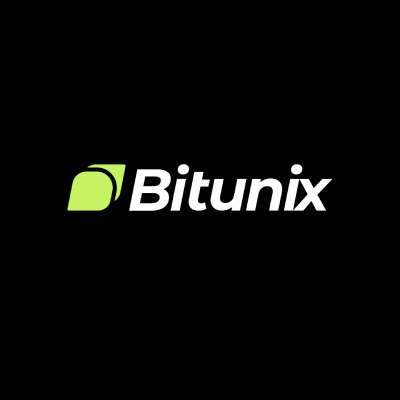原作者:昊天
In short: 1) The prerequisite for Starknet to expand Bitcoin is that the OP_CAT proposal is passed first, which is uncertain; 2) Starknets entry into BTC layer 2 may break the embarrassing situation that BTCs ecosystem is bright in the east and not in the west; 3) The trend of layer 2 tending to layer 1 is strengthening. Will high performance become the differentiated advantage of Starknet? Next, let me talk about my opinion:
1) OP_CAT can realize the combined link processing of multiple UTXO unlocking Script byte strings, thereby greatly improving the programmability of the BTC main network. OP_CAT allows script fragments to be combined, and STARK proof is a very simple and efficient way of computational verification. With the foundation of OP_CAT, Starknet naturally has the ability to batch transactions to the BTC main network through STARK proof and perform ZK Validity verification.
However, it is still uncertain whether OP_CAT can be passed. Even if OP_CAT is passed, there are still many unknown challenges to its perfect combination verification processing for large-scale layer 2 transactions. Therefore, Starknets entry into BTC layer 2 can only be regarded as a narrative direction.
Theoretically, as long as OP_CAT is passed, not only Starknet, but other Ethereum layer 2s with ZK-Rollup can also queue up to join. Other BTC expansion plans such as BitVM, AVM, RGB, RGB++, Lightning Network, etc. will also get gain buffs. It is still unknown whether Starknets expansion plan can gain an advantage at that time.
2) On the contrary, I think that whether it is Starknet narrative or its ambition to expand market application scenarios, its choice of BTC layer 2 is a big boon to the overall BTC ecosystem. At least it can attract more Western capital attention to the BTC ecosystem and provide stronger support for the legitimacy of the existence of BTC layer 2.
Moreover, the fact that a project of Starknet level can promote the implementation of OP_CAT will increase the possibility of its passing. There may be some capital operations behind such a high profile. (Although Bitcoin Core member Peter Todd has publicly stated that Starknet entry has added new reasons to oppose OP_CAT, believing that it will have a destructive impact on Bitcoin.
From a positive perspective, it will drive the capital behind Starknet to bullish BTC layer 2, connect with the ecosystem developers radiated by Starknet, and at the same time, Starknet will explore and improve the corresponding technical standards and new technologies to align with the BTC ecosystem. It will continue to enhance the comprehensive capabilities of the Starknet chain and attract more capital and developers in the direction of BTC layer 2, which has a banner-like appeal.
3) I wrote an article before saying that as modularization splits and recombines the DA layer, execution layer, and even the settlement layer, layer 2 projects are gradually becoming layer 1. Now, even Ethereums most loyal layer 2 project Starknet has announced that it has defected. Its not that the child is too old to be disciplined, but that there is a lot more to come.
Everyone must have noticed that with the launch of the Stack strategy by OP-Rollup and ZK-Rollup, the lightweight deployment services of one-click chain launch and Rollup as a Service have reduced the cost and efficiency of launching layer 2 chains to an unprecedented low. The question is, with too many chains, what should we do if the ecological applications and user growth cannot keep up?
It can only further expand the narrative of technical scalability. Starknet published a statement a while ago that Starknet is already the chain with the highest TPS, and the Fee has been reduced to $0.01. It also supports parallel transaction processing. The subsequent Volition will further reduce the DA cost, etc. However, who cares? These cannot bring new growth expectations to the market. In contrast, if Starknet can break away from Ethereum and extend to Bitcoin application scenarios, it will be different.
Once Starknet breaks free from the constraints of the Ethereum mainnet, its potential will no longer be limited to layer 2. Its ZK technology foundation, parallel transactions, Cario language, and other high-performance foundations will become its core advantages that distinguish it from other layer 2s.
Because, if layer 2 wants to become layer 1, it must be based on ultra-high performance technology, and Starknet is not short of technology. Obviously, from this perspective, it is difficult for the market expectations for Starknet not to increase. God knows, one day Starknet will not issue a notice to become a ZK unified layer and become the ZK infrastructure of the full chain environment.
Anyway, once the narrative constraints of layer 2 are broken, Starknets imagination space will be very different.
This article is sourced from the internet: What do you think of Starknet鈥檚 announcement to enter the Bitcoin Layer2 field?
Related: Polygon (MATIC) Price Continues to Show Signs of an Extended Consolidation
In Brief MATIC’s price has been stuck between $0.74 and $0.64 for more than three weeks, failing a breach four times. Broader market cues are not favoring a breakout for MATIC either, with the RSI dipping below the neutral line. The altcoin is facing a barrier of 1.05 billion MATIC from $0.71 to $0.77, which could resist an attempt at recovery. Polygon (MATIC) has been moving sideways for days and is awaiting a trigger to help the altcoin escape its consolidation. But by the looks of it, MATIC investors could end up waiting longer, given that major resistance is blocking recovery. Polygon Is Noting Bearish Cues MATIC’s price has been testing the upper and lower limits of the consolidation range it has been stuck in for a while now. The broader market cues are not necessarily helpful to…







